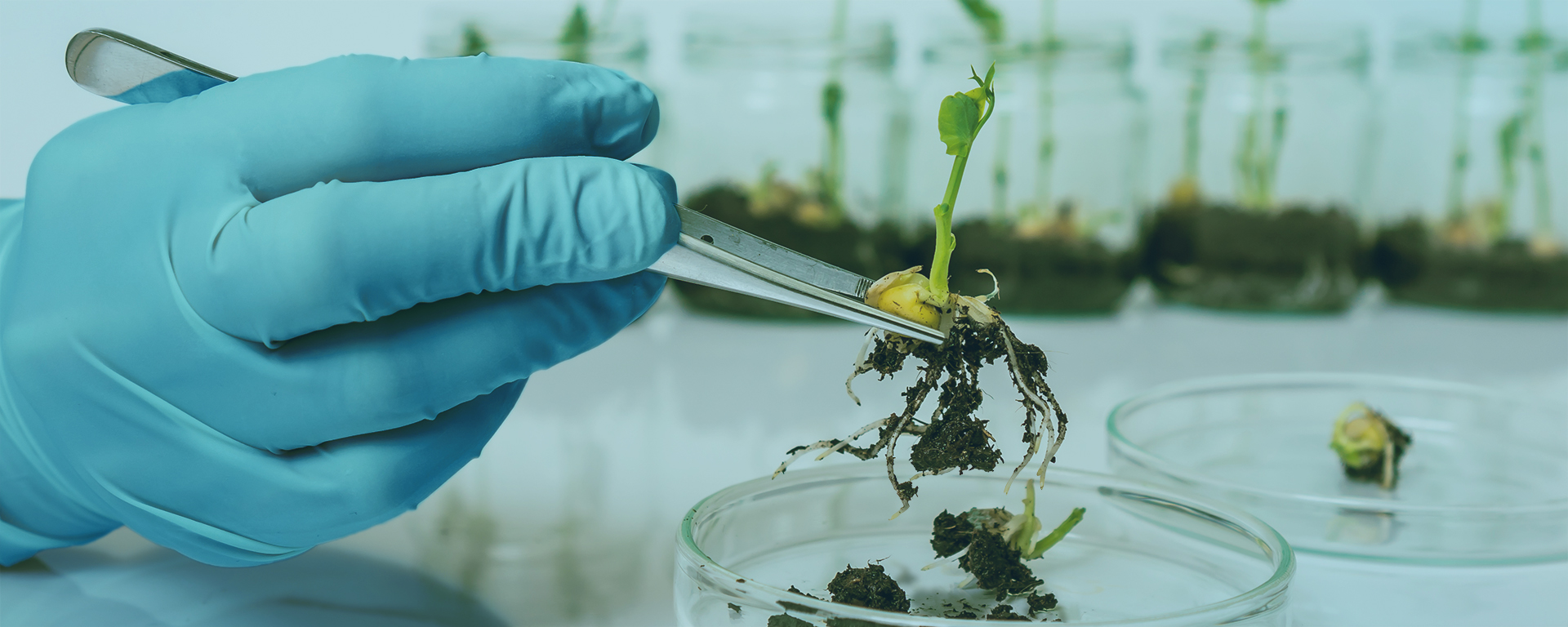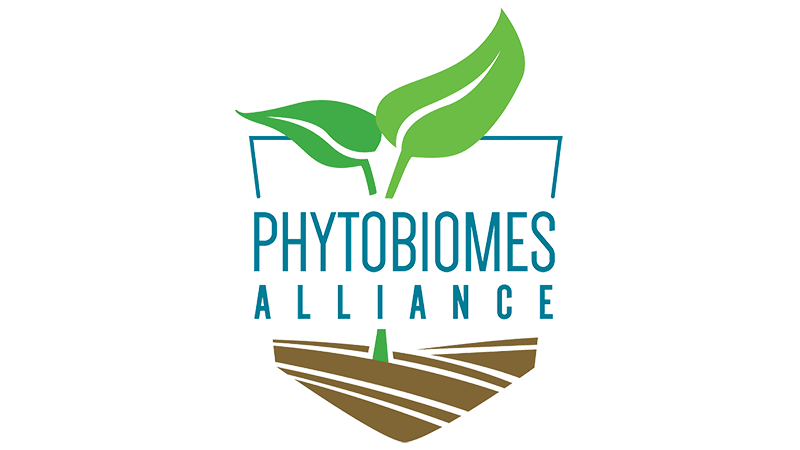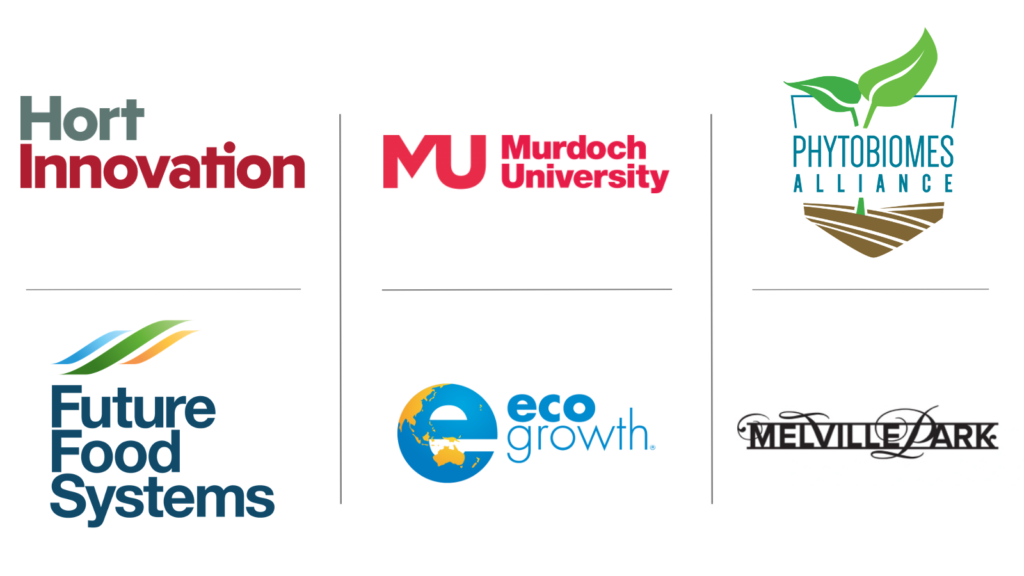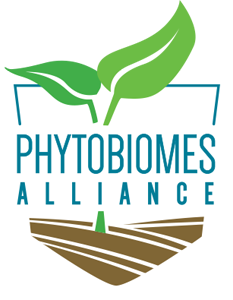
Novel microbiome technologies to increase profitability for Australian horticulture
Phytobiomes Alliance project
Funded by
Duration
4 years
Dates
March 2022 - February 2026
Coordinator
Kirsty Bayliss, Murdoch University

Project Overview
The objective of this project is to develop and deploy new microbiome-based products that increase the yield and therefore profitability of annual and perennial Australian horticultural crops, including those under protected cropping. The products will be developed by analysing the microbiomes associated with the life cycle of the crop, from seed to harvest. In particular, we will assess how these microbiomes change when exposed to biotic or abiotic stresses. Our aim is to select consortia of microorganisms that are associated with crops that exhibit higher tolerance to these stresses, and develop these into new products that increase crop yield.
The project comprises three research activities:
- Situation analysis. We will examine the current state of the market with respect to existing products in Australia, and the need for expansion beyond this market, particularly to cope with a warming and drying climate across most of Australia, and indeed globally. We will produce a report to provide guidance as to potential opportunities, regulatory requirements, and the likelihood of market acceptance and this will be workshopped with stakeholders.
- Microbiome discovery for selected annual and perennial crops, specifically tomatoes, potatoes and avocados. Using advanced computational tools, we will assess the baseline microbiome for each crop when grown under optimal conditions, and compare this to the microbiome associated with crops that are under biotic stress (from pests and diseases) or abiotic stress (e.g. nutrients, drought, waterlogging, heat). Our goal is to discover consortia of beneficial microbes based on a sequence data-driven approach. This activity will build a secure central repository for microbial sequencing data that will allow accelerated downstream processes to discover beneficial microbes faster, and to quickly identify candidate microbes for commercialisation.
- Demonstration field sites. For showcasing existing products that are not yet released to the Australian market, and to conduct extension and training activities with growers. This will include the demonstration of field applications of commercialised products, including standard operating protocols and guidelines to integrate the new products with existing farming practices. These field sites will also be used to demonstrate the efficacy and persistence of the products over time.
This project represents the first phase of what we anticipate will be a long-term partnership with the Australian horticultural industry. This first phase is designed to demonstrate that assessing the plant microbiome with advanced computational technologies is a valid method for discovery of microbial consortia and development of microbiome-based products. It will also showcase the improvements in crop productivity and likely commercial viability of selected products. Beyond this phase we will transfer the technology to a broader range of horticultural crops, including nuts and legumes, and focus on commercialisation of validated microbial consortia. The outcome of this project is measurable increases in horticulture crop productivity, arising from uptake of new microbiome-based products.
Project Updates
- April 2023 – Hort Innovation project update
- June 2023 – Alliance Newsletter
The first phase of the project – a situation analysis – was completed in October 2022. The project is now in phase two, where the focus is on identifying suitable locations for field trials and demonstration sites. Field studies of three biological products have started on two plots of tomatoes and one avocado plantation.
Key personnel
Kirsty Bayliss (Murdoch University)
Kellye Eversole (Phytobiomes Alliance)
Giles Hardy, Treena Burgess, Richard Bell (Murdoch University)
David Doepel and Barbara Connell (Melville Park)
Angela Sessitsch (AIT Austrian Institute of Technology)
Ann Hirsch (University of California, Los Angeles)
Patrick Brown (University of California, Davis)
Project Partners

